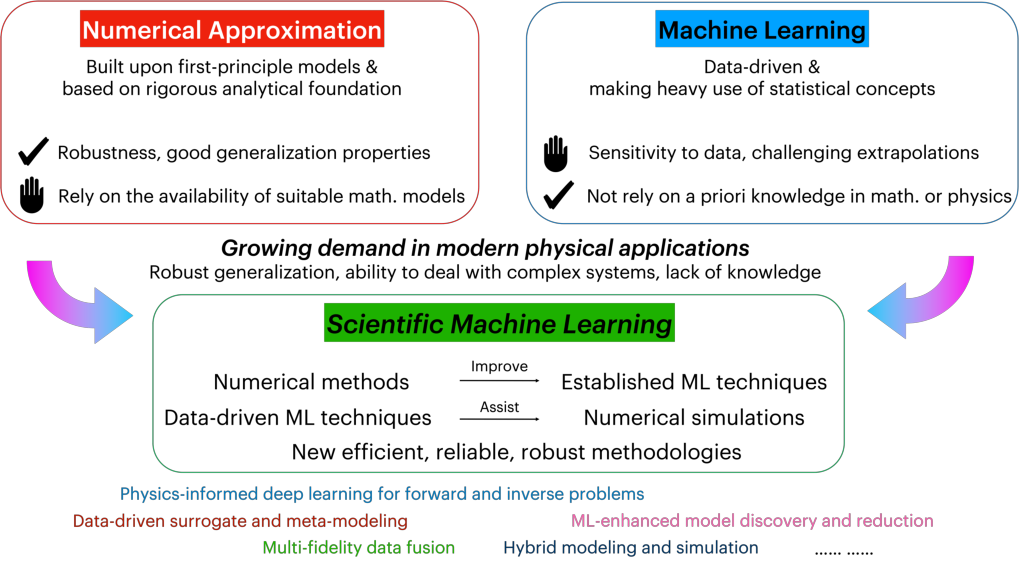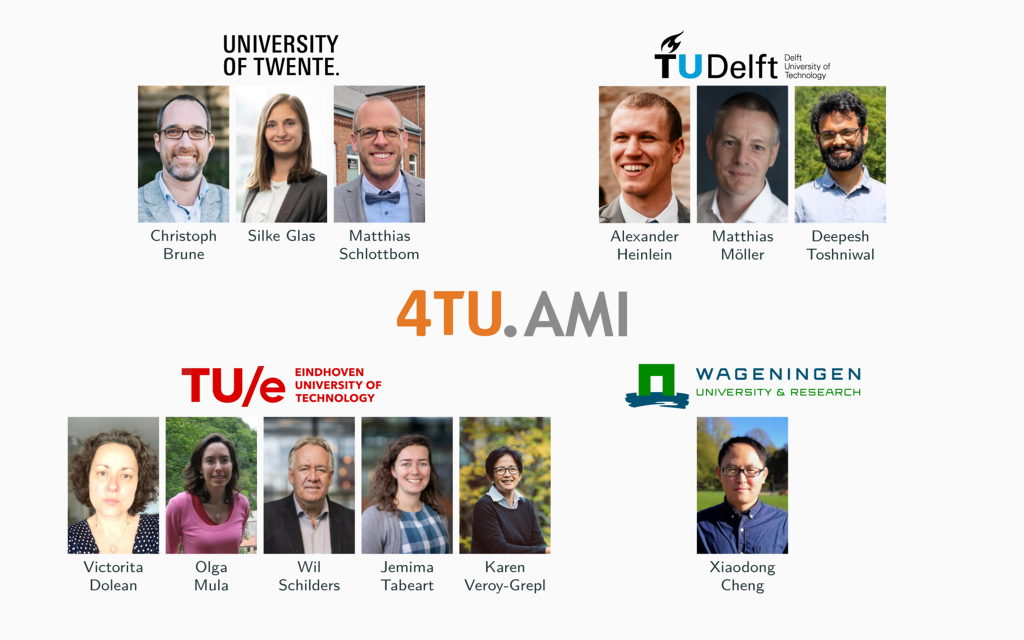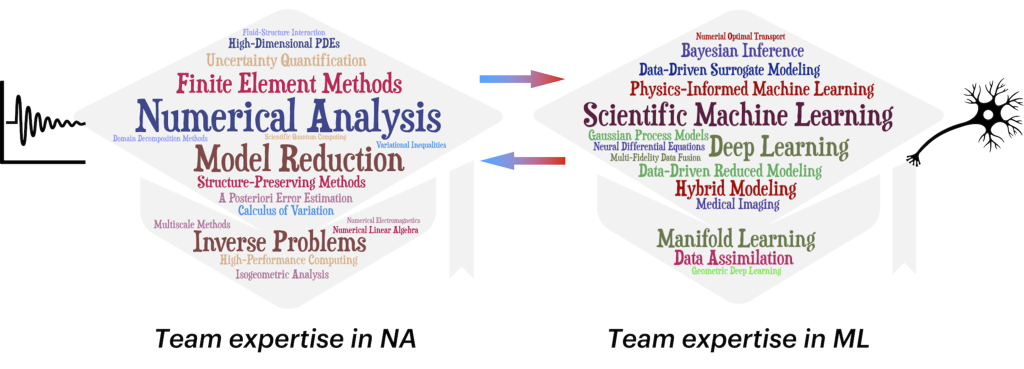SRI 'Bridging Numerical Analysis and Machine Learning'
Abstract/description
Numerical approximation methods for differential equations and machine learning techniques are two well-established classes of algorithmic methods that come with their individual strengths and weaknesses. While numerical methods are typically built upon first-principle physical models and based on a rigorous analytical foundation, machine learning techniques are data-driven and make heavy use of statistical concepts. Although numerical methods are often very robust and have good generalization properties, they rely on the availability of suitable mathematical models. On the other hand, while machine learning techniques are sensitive to the underlying data and typically cannot extrapolate outside the given data-range, they do not rely on a priori knowledge of a mathematical model for the physical phenomena. Therefore, the choice for a classical numerical or a machine learning method depends strongly on the characteristics of the application problem. On the other hand, there is a growing demand in modern physical applications for robust generalization and the ability to deal with complex systems with a lack of knowledge, which asks for the synthesis of numerical and machine learning methods.
Scientific Machine Learning (SciML) is an emerging area in computational science that investigates such synergy, with the goal of combining the strengths and compensating the weaknesses of scientific computing and machine learning, as well as creating new efficient, reliable, and robust methodologies by employing aspects from both. Our Strategic Research Initiative focuses on the mathematical foundation of SciML and will investigate how numerical analysis and machine learning can be integrated to bring about breakthroughs in SciML. In particular, we are interested in: (i) the use of machine learning in assisting classical numerical approximation and simulation, and (ii) the development of rigorous numerical analysis methods for machine-learning-based methods of forward and inverse problems governed by differential equations.
Even though SciML research has been booming in the past five years, and numerous machine learning tools have been implemented for various applications in computational science and engineering, we believe that the important role of well-established numerical simulation techniques over decades cannot be replaced by machine learning algorithms, but can be aided, enhanced, or improved by them. Within this project, ten 4TU computational mathematicians who have research expertise in both numerical analysis and machine learning join forces to strengthen research and academic exchange in SciML among the 4TUs, in the Netherlands, and beyond. This consortium brings along a diverse skill set including computational analysis, error estimation, and uncertainty quantification from which the development of SciML will significantly benefit.
This SRI started on 01-09-2022 and aims to reach its goals before 01-09-2024.

Goals
- Technical goal in mathematics
One of the project goals is to enable research collaboration among the SRI participants, including both the initial team members and other participants joining the SRI, which will be reflected by high-quality publications in internationally reputable journals. Our research will be focused on developing novel numerical methodologies that enhance numeral analysis techniques using machine learning and vice versa. - Short-term project goal
The proposed project brings together both early-career and experienced 4TU researchers who are actively working at the interface between numerical analysis and machine learning and have made significant contributions to these fields. Through this SRI project, we aim at forming a vibrant community and leading force in the mathematical research of SciML in the Netherlands and developing high-quality collaborative research with international visibility. - Mid-term project goal
The mid-term goal of this project is to organize a collaborative grant application with a consortium consisting of the team members. The application will be based on the vision of this SRI project and propose cutting-edge research on the mathematical methodologies synthesizing numerical analysis and machine learning, which would also be well embedded into the SciML research community in the Netherlands. - Educational goal
Another goal of this project is to introduce young computational scientists to current topics in SciML. This will further strengthen the SciML community in the Netherlands, enabling the continuation of SciML research in the coming generations of researchers.
Participants


Contact person
- Alexander Heinlein (TU Delft)



